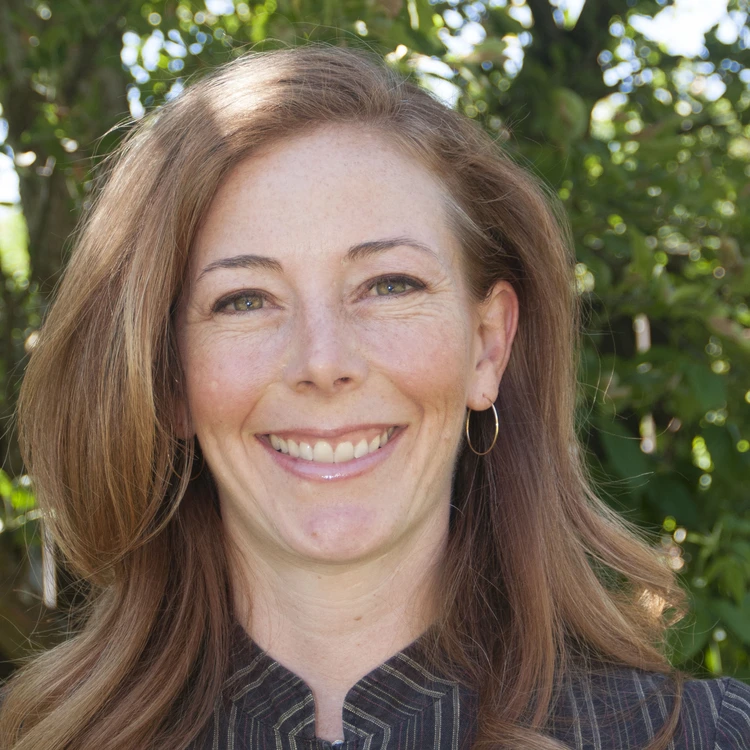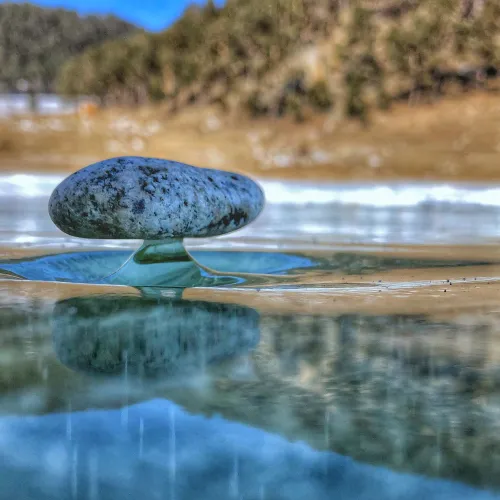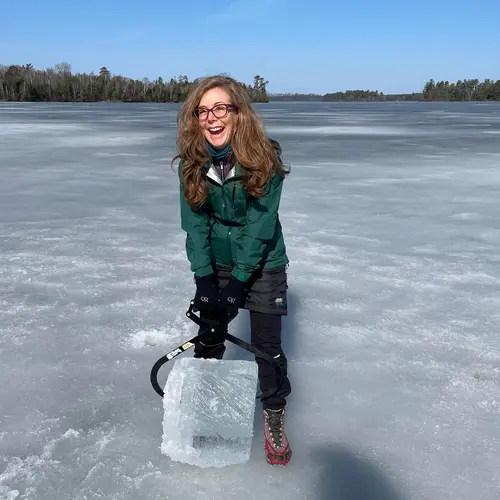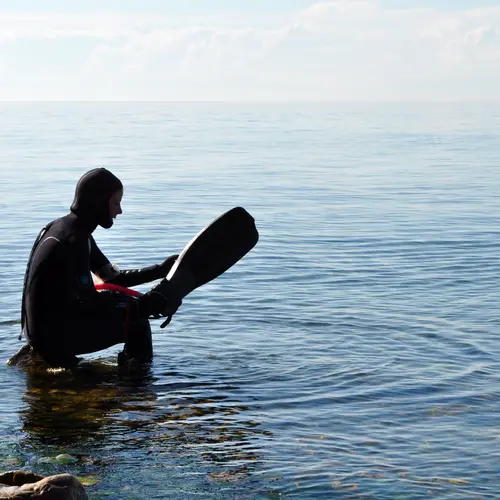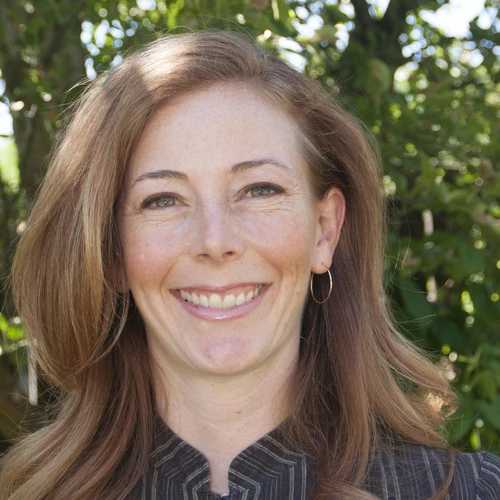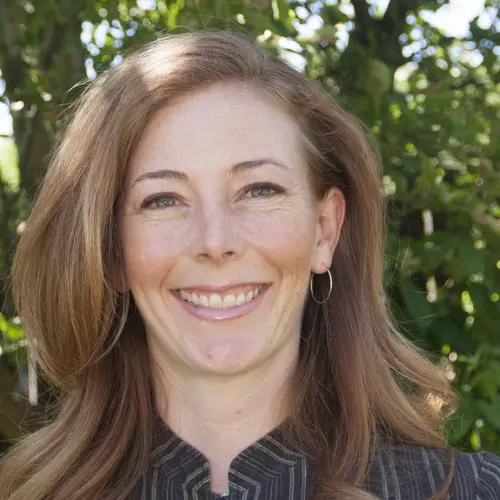Stephanie Hampton arrived from the National Science Foundation, where she was the director of the Division of Environmental Biology. She was also a professor and the former director of an interdisciplinary environmental research center at Washington State University.
At Washington State, Hampton was part of a leadership team that oversaw the design, construction, and governance of a new research building to house the university’s Center for Environmental Research, Education, and Outreach, of which she was the director at the time.
This background will be invaluable as Carnegie prepares to relocate its life and environmental scientists to a new home in Pasadena where experts from a variety of fields will tear down disciplinary silos and tackle environmental, health, and energy system challenges at scales ranging from the molecular to the global.
Hampton’s own research focuses on the dynamic factors that shape aquatic ecosystems, with a focus on Lake Baikal in Siberia and the lakes of the Pacific Northwest. Her work has informed environmental conservation efforts and policymaking.
Prior to Washington State, Hampton served in several leadership roles at U.C. Santa Barbara, including deputy director of the National Center for Ecological Analysis & Synthesis, managing director of Science for Nature and People, and Interim Director of Community Engagement and Education for DataONE.
She received her Ph.D. in ecology and evolution from Dartmouth College, a master’s degree in biology from University of Nevada Las Vegas, and a bachelor’s degree in biology from the University of Kansas Lawrence.
This background will be invaluable as Carnegie prepares to relocate its life and environmental scientists to a new home in Pasadena where experts from a variety of fields will tear down disciplinary silos and tackle environmental, health, and energy system challenges at scales ranging from the molecular to the global.
Hampton’s own research focuses on the dynamic factors that shape aquatic ecosystems, with a focus on Lake Baikal in Siberia and the lakes of the Pacific Northwest. Her work has informed environmental conservation efforts and policymaking.
Prior to Washington State, Hampton served in several leadership roles at U.C. Santa Barbara, including deputy director of the National Center for Ecological Analysis & Synthesis, managing director of Science for Nature and People, and Interim Director of Community Engagement and Education for DataONE.
She received her Ph.D. in ecology and evolution from Dartmouth College, a master’s degree in biology from University of Nevada Las Vegas, and a bachelor’s degree in biology from the University of Kansas Lawrence.
Honors
- Chandler-Misener Award from the International Association for Great Lakes Research, 2017.
- Kaeser Scholar at University of Wisconsin-Madison Center for Limnology, 2014-2015.
- Fellow, Association for the Sciences of Limnology and Oceanography, 2015.
Professional Service
- National Science Foundation Directorate for Biological Sciences Advisory Committee, 2016-2018.
- Chair - National Center for Ecological Analysis and Synthesis, Science Advisers, 2014-2017.
- Canadian Institute of Ecology and Evolution, Advisory Board member, 2016-2018.
- Chair - National Science Foundation Advisory Board Subcommittee on NEON Scope, 2015.
- Ocean Modeling Forum Advisory Board member, 2014-2017.
- Conservation Research Panel member for Luc Hoffman Institute, World Wildlife Fund, 2013 – 2015.
- Limnology and Oceanography, 2014-2016.
- Ecosystems, 2016-2018.
- Ecosphere, 2017-2019.
- Ecological Society of America
- Sustainability Science Committee, 2014-2017.
- Steering Committee for improving American engagement with the Intergovernmental Platform on Biodiversity and Ecosystem Services (IPBES) , 2014-2017.
- Planning Committee for Ecology Data, 2017.
- Science Committee, 2013-2017.
- Chair -Aquatic Section, 2011-2013 (Co-chair 2009-2011).
- Association for the Sciences of Limnology and Oceanography
- Redfield Lifetime Achievement Award Committee, 2016-2018.
- Organizing Committee, 2018 ASLO Victoria Meeting, 2017-2018.
- Redfield Lifetime Achievement Award Committee, 2016-2018.
Team Lead
- Balancing Technological and Institutional Solutions within Food-Energy-Water Systems, 2015.
- Increasing Capacity in Data-Intensive Environmental Research, 2015.
- Ecology Under Lake Ice, 2014-2016.
- Open Science CodeFest, 2014.
- DataONE Community Engagement and Education, 2009-2014.
- Institute for Sustainable Earth and Environmental Software Workforce Development, 2013.
- NCEAS Lake Baikal Plankton, 2004-2006.
Training Lead
- Multivariate Autoregressive Modeling, Ecological Society of America and NCEAS, 2007.
- Open Science for Synthesis, 2014.
- NCEAS Summer Institute, 2013.
- How to Prepare Ecological Data Sets for Effective Analysis and Sharing - Ecological Society of America, 2010, 2011, 2012.
Session Organizer at Professional Meetings
- Long-term Perspectives on Aquatic Research, Association for the Sciences of Limnology and Oceanography, 2017.
- Recent Ecological Change in Ancient Lakes, Association for the Sciences of Limnology and Oceanography, 2015.
- Communicating the Value of Aquatic and Wetland Ecosystems to the Public and Policy Makers, Association for the Sciences of Limnology and Oceanography, 2014.
- Growing Pains: Taking Ecology Into the 21st Century, Ecological Society of America, 2012.
- Long-term Perspectives on Lake Research and Management, Association for the Sciences of Limnology and Oceanography, 2013.
Working Group Participant
- Advancing Theory and Research on Scientific Synthesis, NESCent/NCEAS, 2012-2014.
- NCEAS Gulf Oil Spill Ecotoxicology, 2010.
- Natural History in Research and Environmental Management, 2011.
- Global Lake Temperature Collaboration, 2012 - 2015.
- NEON-ESA-NCEAS Distributed Undergraduate Seminar - Engaging Undergraduate Students in Ecological Investigations Using Large Public Datasets, 2009 -2011.
- Steering Committee - Socio-Environmental Synthesis Education, SESYNC, 2012.
- Steering Committee - Climate change and species interactions: ways forward, Cary Institute for Ecosystem Studies, 2012.
